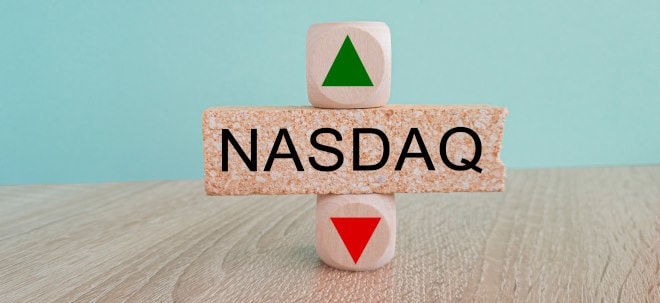INTERVIEW @the "Cantech Letter" mit John McNicol
Quelle:http://www.cantechletter.com/2011/01/...esident-and-co-ceo-of-enwave/
Nur für registierte User, daher anbei der Text als Copy & Paste:
Everywhere you look, food is news. From the government of Algeria increasing wheat supplies after food riots, to food price inflation in India deterring foreign investors to the suicide of a Tunisian fruit seller sparking a revolution. When you can offer tangible improvements to a business that might be the most important on the planet, people take notice. Shares of Vancouver's EnWave, which is developing commercial applications for food dehydration technologies developed at The University of British Columbia, have gone from mere pennies in 2009 to a high of $2 on January 14th of this year. EnWave has yet to show much in the way of revenue, but has nabbed key relationships with giants Nestlè SA and Danisco AS. With a full scale pilot facility to demonstrate its Radiant Energy Vacuum (“REV”) dehydration technologies already up and running, 2011 looks to be an interesting year for EnWave. Recently, Cantech Letter talked to EnWave President and CEO John McNicol about what lies ahead.
John, can you tell the readers of Cantech Letter a little about your Radiant Energy Vacuum (REV) dehydration technology?
EnWave’s Radiant Energy Vacuum (REV) dehydration technology combines microwave energy with vacuum pressure to control the temperature at which liquids boil and subsequently evaporates. This is a major advancement in the dehydration of food and biomaterials because it provides a high-speed, cost efficient method of drying at lower more gentle temperatures allowing forthe retention of beneficial product characteristics such as flavour, texture, colour and biomaterial activity.
EnWave has developed five distinct REV technologies; nutraREV™ for use in the food industry to dry fruits, vegetables and other products more quickly and less expensively than conventional methods, powderREV™ for the bulk dehydration of food cultures, probiotics and fine biochemicals such as enzymes, quantaREV™ for high-volume continuous, low-temperature dehydration of solids, liquids, granular or encapsulated products, and bioREV™ & freezeREV™ technologies are designed to dry biomaterials in vials such as vaccines and other biopharmaceuticals, scientific reagents, and medical diagnostic materials, although at different temperatures depending on the heat sensitivity of the live or active organisms in the contents.
Each technology is being designed to offer competitive advantages over one of the current industry standard technologies which are spray drying, air drying or freeze drying. Some of the advantages of each of the technologies may include including significant cost savings, increased product quality, and reductions in process time to minutes or hours rather than days.
How much intellectual property does EnWave own is this area?
EnWave possesses a strong growing patent portfolio that protects our key intellectual property. In total, we hold 14 food and biotechnology issued or pending patents pertaining to the REV technology. Eight of those 14 patents are exclusively licensed from the University of British Columbia (these technologies were invented by Co-CEO, Dr. Tim Durance, in his laboratory at UBC’s Department of Food, Nutrition and Health). The 6 other patents are in EnWave’s own name.
What is the landscape like, competitively?
For many years the global dehydration industry has relied on three primary methods. Spray drying and air drying are high speed continuous technologies which use heat as the primary method to dry materials. Under these methods exposure to high heat and oxygen tend to damage key attributes such as nutritional retention, flavors, colors, texture and bioactivity. More than 50 years ago freeze drying was established as a method to dry more sensitive high quality materials where retaining these key attributes are important. Under freeze drying materials are frozen and through sublimation the materials are gradually dehydrated in several hours or multiple days (depending on the product). The freeze dried process typically uses large batch systems, is slow and requires extremely high capital and energy costs.
EnWave’s REV technology is uniquely positioned to offer high speed low temperature continuous processing above or below freezing and is being positioned to be faster and cheaper than freeze drying with better quality than spray or air drying. This provides EnWave with a chance to introduce a major disruptive technology capable of creating a new global standard in the dehydration industry.
In terms of vacuum microwave competition there are very few competitive vacuum-microwave technology companies in the global market offering diverse platforms focused on the food and/or biological markets. The only company we have seen with an interesting vacuum microwave tray technology called MIVAP is a German group called Hans Binder Gmbh.
In order to enhance our market leadership position, EnWave recently acquired MIVAP patents in the U.S. and entered a long term strategic supply relationship with Hans Binder. Under the agreement EnWave also secured global marketing rights for their MIVAP technology. At this stage I am not aware of any other specific vacuum microwave companies selling viable commercial technology for food and/or biological applications.
Why is dehydration technology important? What are the potential uses?
Dehydration technology is tremendously important because it provides shelf-stable consumer products, reduces shipping weights and costs, and eliminates the need for refrigeration in areas where this facility is not readily or constantly available. Dehydration is used for an extremely wide variety of products: Pretty well everything Humans and animals eat or drink today or medication we are using is either in a dehydrated form or has some dried material or additive like, proteins, probiotics or cultures included too enhance its flavor or health benefits. Other active ingredients such as enzymes for detergents, biofuels, rubbers etc, or materials used in the discovery of new pharmaceutical drugs require significant levels of drying for simplifying the delivery or extending the shelf life and testing periods. . The potential uses for drying are likely only limited by the market demand for fresh products versus dried ones. In the food sector alone there are over 400 different freeze dried ingredients on the market, covering major markets such as soups, pets foods, packaged foods, baby foods , beverages , low fat snacks, nutraceuticals, ingredients, concentrates etc,.
What are the immediate markets EnWave is addressing?
Overall, EnWave is working towards the introduction of a fourth dehydration technology, one that is cheaper and faster than and freeze drying, and retains more nutritional value and desirable product characteristics than air drying or spray drying. Currently, we are targeting three major markets that use freeze drying as a standard technology: food, bulk liquids and pharmaceuticals. Presently, most of our commercialization efforts are focused on the delivery of technology to the food and bulk liquids markets, however, we do have prototype technology that has been successfully used to dehydrate pharmaceuticals and biomaterials. The current accessible market for REV dehydration technology in the freeze drying market is estimated at approximately USD$133Bn with around USD$1.8Bn in equipment sold each year around the world. With the recent introduction of our quantaREV development program, we are now working to obtain figures for the spray and air drying markets which we will be targeting with this new technology.
Can you tell us about your business model and the products you have in the prototype stage?
By offering a proprietary, patented technology positioned to offer significant cost savings and/or product improvements, EnWave’s business model is to work with a selective group of world class multinational collaboration partners to test and commercialize the technology for a wide and diverse group of market applications. Our goal is to focus on licensing and generating royalties on the use of the REV technology. This offers our shareholders with the potential of generating a very high margin revenue stream if we are successful at building a broad customer and royalty base. To date we have established research and testing relationships for a variety of REV platforms with some of the world’s largest companies.
EnWave’s technology development pipeline currently runs the gamut from proof-of-concept to commercial-scale: our nutraREV™ technology has been used successfully on a commercial level, dehydrating up to 100 kg of berry applications per hour. We are currently working with Nestle SA, the largest global food company, and Grupo Bimbo, the largest global producer of baked goods, to develop further applications for this technology, our powderREV™ technology is currently in prototype stage, and is being developed in collaboration with Danisco AS, the world`s largest producer of probiotics and food cultures. We expect to begin testing a continuous pilot-scale machine in the first quarter of this year with the goal of providing it to Danisco to test at their U.S.-based pilot-plant in the second quarter.
Our newest technology platform, quantaREV™, is currently in the early-prototype stage and we will soon begin testing it with our collaboration partner, Grimmway Farms the world’s largest supplier of organic carrots and vegetables , on a number of their products. quantaREV™ is being designed to provide high-volume continuous belt drying with the goal of several tonnes per hour of output. EnWave has two other technologies currently in the prototype stage: bioREV™ and freezeREV™. The former is currently being tested at our biotechnology facility in a single-vial format, and the latter is now being used in both a single-vial and multi-vial format on biomaterials such as bacteria, enzymes and antibodies. In 2011, we hope to complete a new version of the multi-vial freezeREV™ machine for testing by our partner, the Saskatchewan Research Council, on their proprietary E.coli animal vaccine.
You recently completed a $10 million private placement. Will EnWave need further dilutive financings or do you see this money taking you to profitability?
This latest financing will put us in a very comfortable financial position. We do not anticipate the need to raise further equity at this time unless there is a substantial change to our current business model
* peaceful Chinasky |


 Thread abonnieren
Thread abonnieren


 aber die kennt Ihr ja schon* bei CAN$2,07!
aber die kennt Ihr ja schon* bei CAN$2,07!